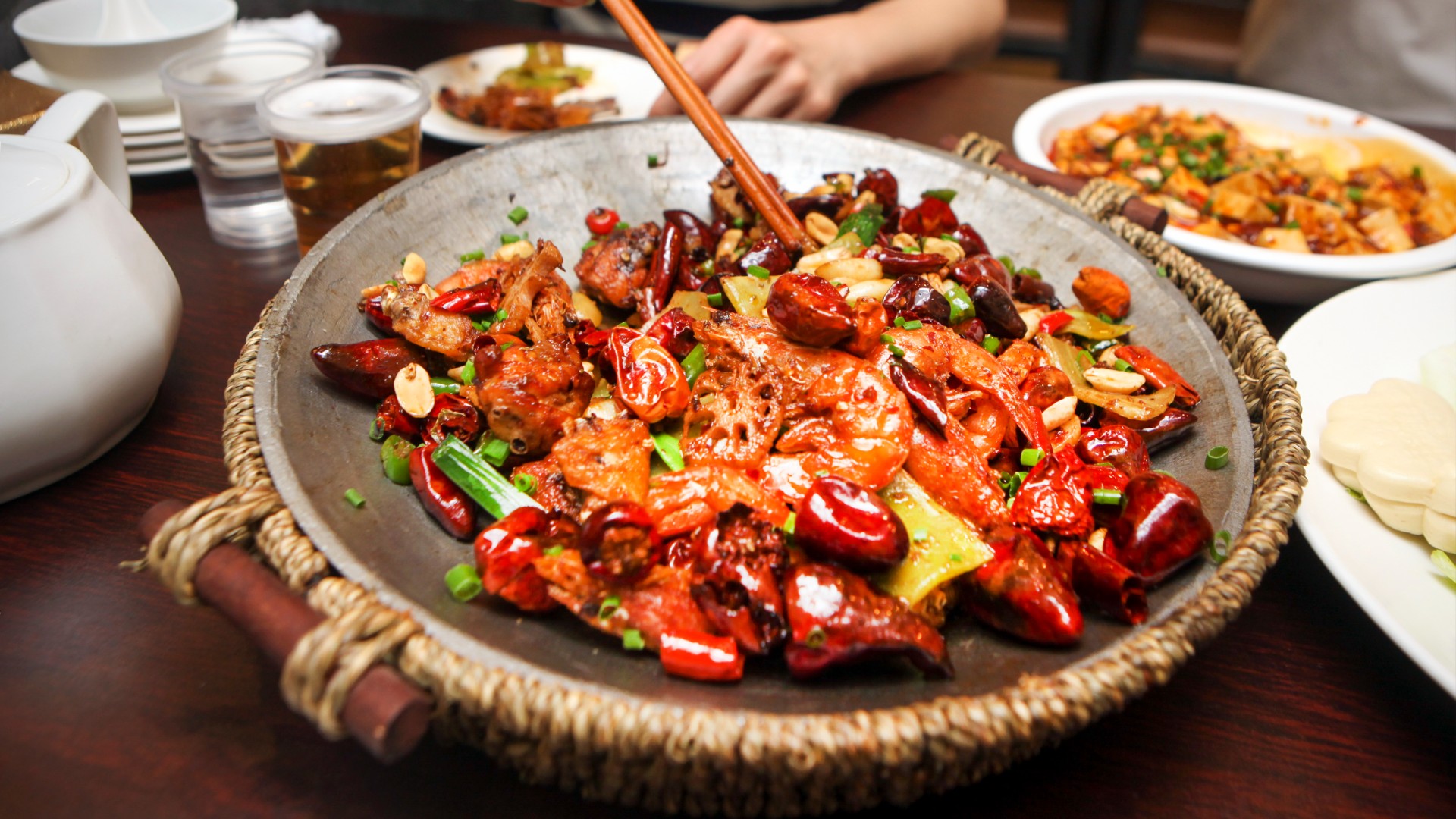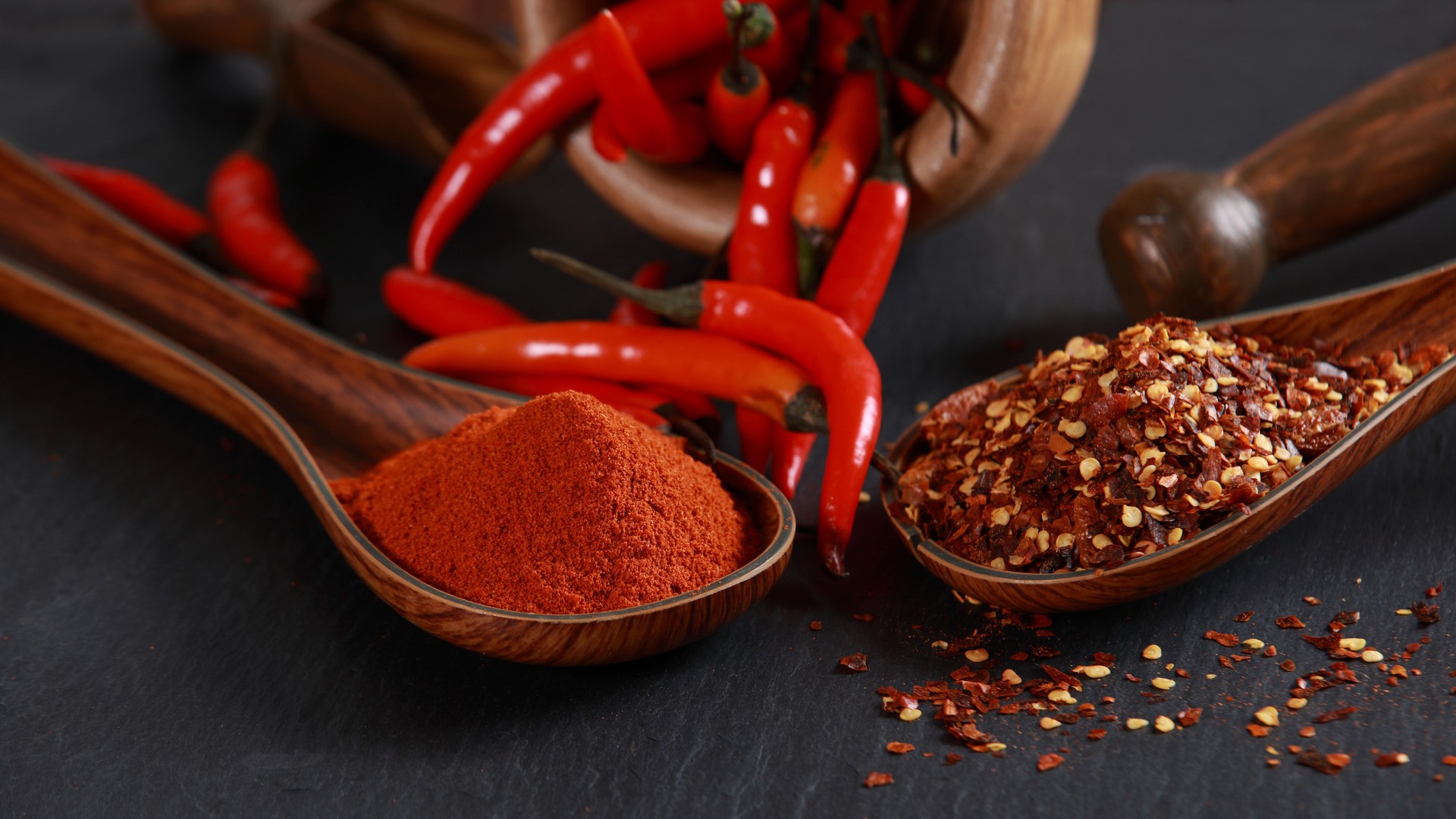Why do people like spicy food?
The chemicals that make food spicy don't target taste receptors, but rather temperature receptors in the tongue.

Get the world’s most fascinating discoveries delivered straight to your inbox.
You are now subscribed
Your newsletter sign-up was successful
Want to add more newsletters?

Delivered Daily
Daily Newsletter
Sign up for the latest discoveries, groundbreaking research and fascinating breakthroughs that impact you and the wider world direct to your inbox.

Once a week
Life's Little Mysteries
Feed your curiosity with an exclusive mystery every week, solved with science and delivered direct to your inbox before it's seen anywhere else.

Once a week
How It Works
Sign up to our free science & technology newsletter for your weekly fix of fascinating articles, quick quizzes, amazing images, and more

Delivered daily
Space.com Newsletter
Breaking space news, the latest updates on rocket launches, skywatching events and more!

Once a month
Watch This Space
Sign up to our monthly entertainment newsletter to keep up with all our coverage of the latest sci-fi and space movies, tv shows, games and books.

Once a week
Night Sky This Week
Discover this week's must-see night sky events, moon phases, and stunning astrophotos. Sign up for our skywatching newsletter and explore the universe with us!
Join the club
Get full access to premium articles, exclusive features and a growing list of member rewards.
Not everyone likes it hot. That's because eating spicy food can literally be a painful experience, which raises some questions: What makes certain foods spicy, and why do only some people like them?
Spiciness is related to temperature sensation, which is why it doesn't make the list of classic tastes alongside sour, bitter, sweet, salty and umami. In addition to its taste receptors, the tongue hosts different temperature receptors, some of which are triggered by spicy foods to create a literal burning feeling. So it's not an exaggeration to say that Indian or Thai food packs some "heat."
The "spicy" chemical that ignites your tongue is called capsaicin. It comes from chili peppers, which evolved the chemical as a secondary metabolite to protect them from being eaten by predators, John Hayes, director of the Sensory Evaluation Center at Penn State, told Live Science.
Capsaicin fits into a temperature receptor on the tongue called TRPV1. Normally, TRPV1 is set off by temperatures around 104 degrees Fahrenheit (40 degrees Celsius) and higher. But when we eat something spicy with capsaicin, the molecule binds to the receptors and lowers their activation energy. In other words, capsaicin tricks the receptor into sending burning signals to the brain at just 91 F (33 C), Hayes said. So your mouth feels as if it's burning even though it's at mouth temperature, or roughly 95 F (35 C), he said.
Piperine in black pepper and the low pH of vinegar can also trigger TRPV1's "burning" pathway. While allicin in garlic, wasabi and mustard oil all interact with a separate temperature receptor called TRPA1.
Related: Why does mint make your mouth feel cool?
"The party line is that humans are the only animals that actually enjoy this [burning feeling]," Hayes said. Most animals are repelled by the experience.
Get the world’s most fascinating discoveries delivered straight to your inbox.
There are several theories as to why humans enjoy spicy foods despite the sometimes-painful experience. The most robust theory is all about risk and reward, Hayes said. A 2016 study in the journal Appetite showed that a person's risk-taking behavior was a good predictor of their spicy food preference. If they liked riding roller coasters or driving fast down a windy road, they tended to like their chicken wings hot. It all comes down to whether you get some kind of reward or rush from the pain or risk, said Alissa Nolden, a food scientist and sensory expert at the University of Massachusetts.
How the risk-reward experience plays out in the brain is still a mystery. One researcher called spicy food's allure "constrained risk" and "benign masochism." But there isn't any neuroimaging or data to confirm the exact mechanisms in the brain for either of these ideas, Hayes said.
Spicy food consumption may also come down to a personality trait that's reinforced in some social groups or cultures. A 2015 study in the journal Food Quality and Preference found that men in Pennsylvania were more susceptible to external or social motivations for spicy food than women. So there may be some link between spicy food liking and perceived masculinity. Some of the first studies on spicy food preference hypothesized that spicy food consumption was related to the idea of machismo. However, they did not find a difference in spicy food preference between men and women in the Mexican sample.
Another theory postulates that spicy food may have offered an evolutionary benefit in hot environments, Nolden said. Some experts have hypothesized that spicy food was valuable in these areas because it caused perspiration and thus had a cooling effect, she said.
"There's also a genetic component that hasn't been fully explored," Nolden said. It's well known that as people eat more spicy food, they become desensitized to capsaicin. But some people are also born with different or less-functional capsaicin receptors, giving them a higher spice tolerance from the start, according to a 2012 study published in the journal Physiology and Behavior. A lot of the variation in spicy food preference is genetic variation, Nolden said.
For people who have lost their sense of taste, spicy foods may be a gateway into enjoying a meal. For instance, chemotherapy given to cancer patients can change taste receptor cells in the mouth, meaning that foods may taste bitter, metallic or otherwise different than before. Because spicy food is detected by temperature receptors and not taste receptors, its hot sensations may still be felt. In fact, some studies suggest that cancer patients look to spicy foods to increase their sensory experience during or after chemotherapy.
In all, preference for spicy food probably isn't explained by just one of these theories. "It's probably an integration of them all," Nolden said.

Donavyn Coffey is a Kentucky-based health and environment journalist reporting on healthcare, food systems and anything you can CRISPR. Her work has appeared in Scientific American, Wired UK, Popular Science and Youth Today, among others. Donavyn was a Fulbright Fellow to Denmark where she studied molecular nutrition and food policy. She holds a bachelor's degree in biotechnology from the University of Kentucky and master's degrees in food technology from Aarhus University and journalism from New York University.
 Live Science Plus
Live Science Plus












